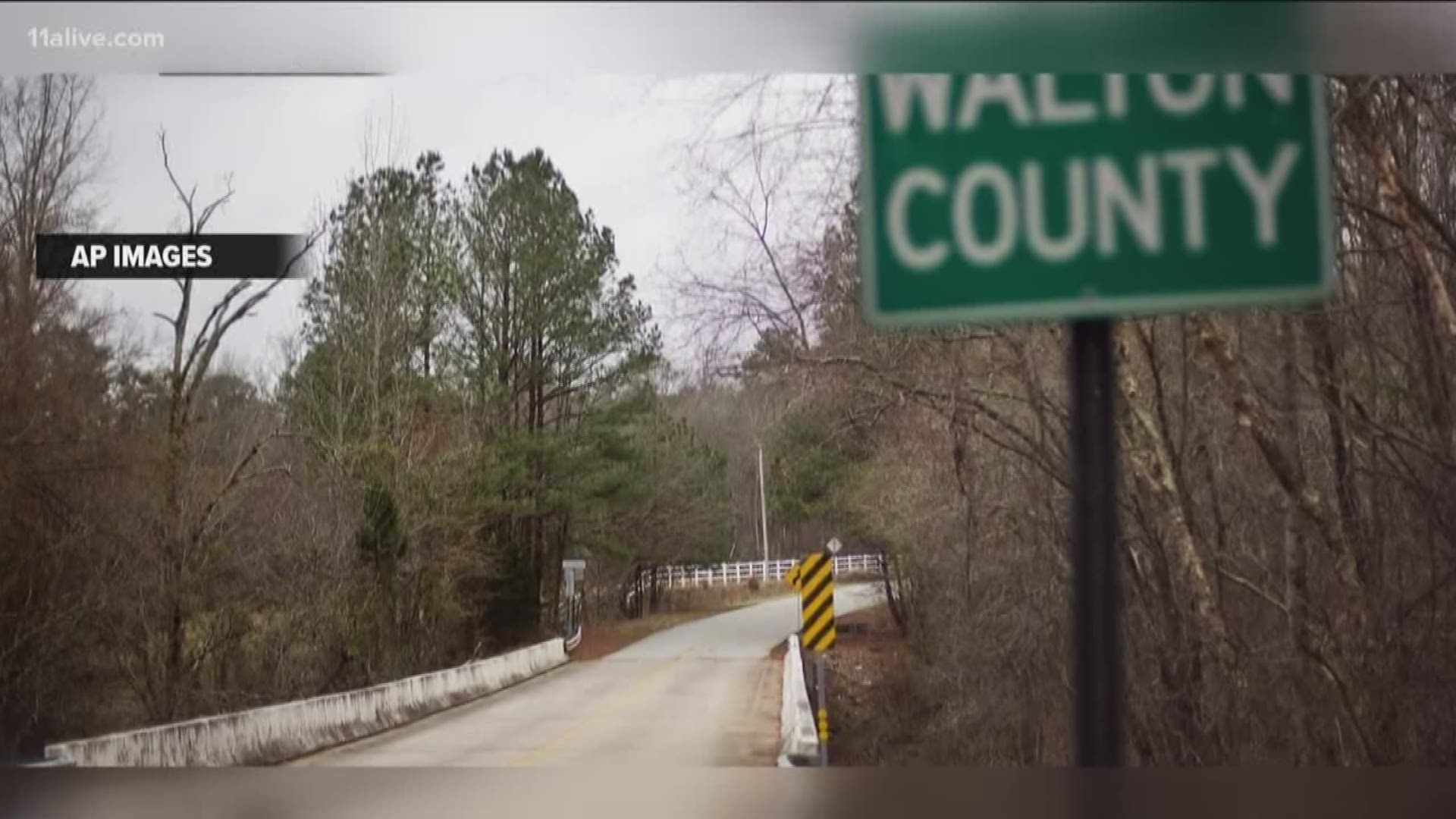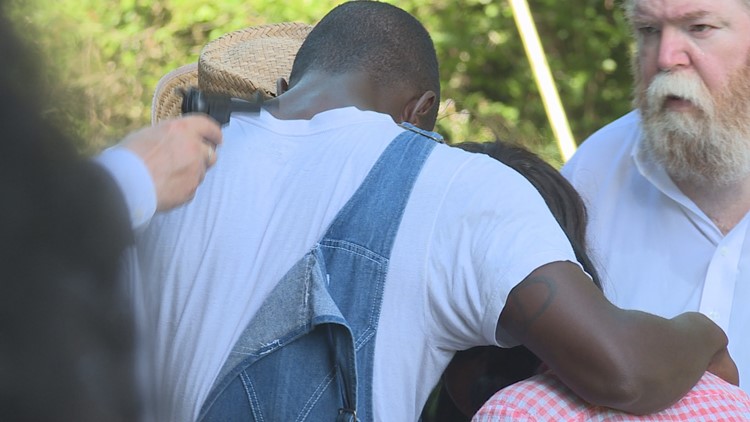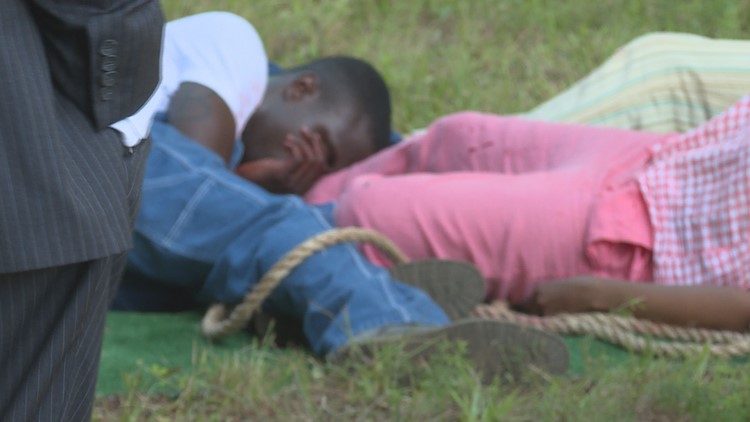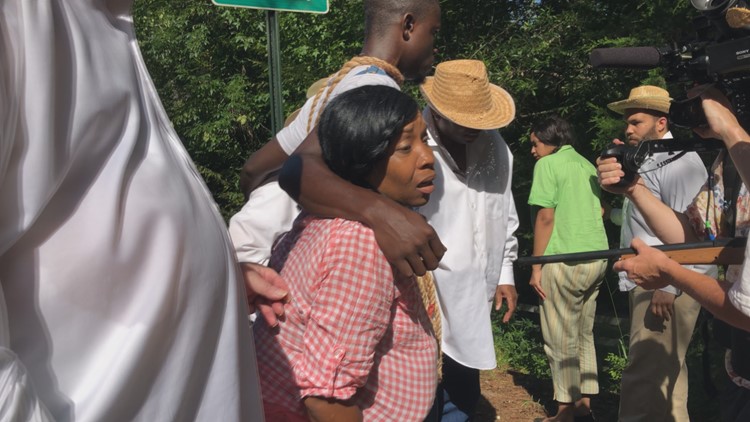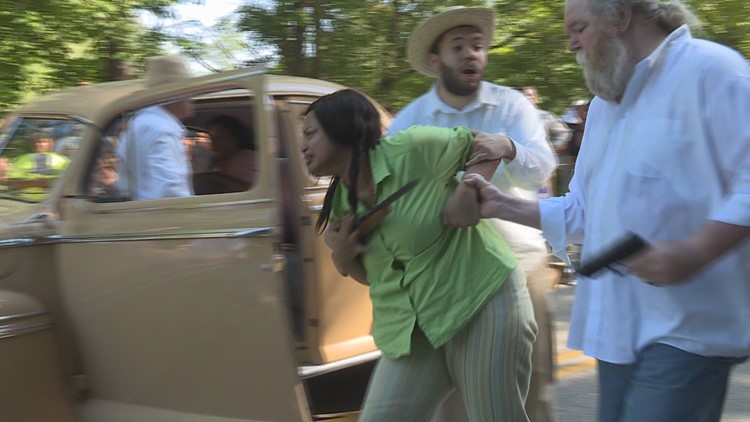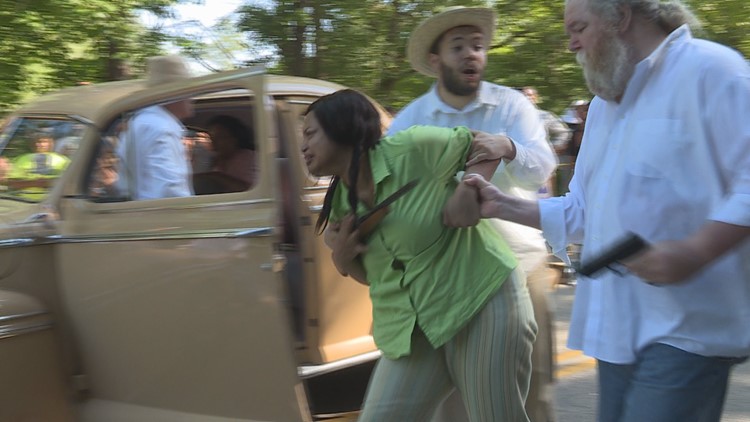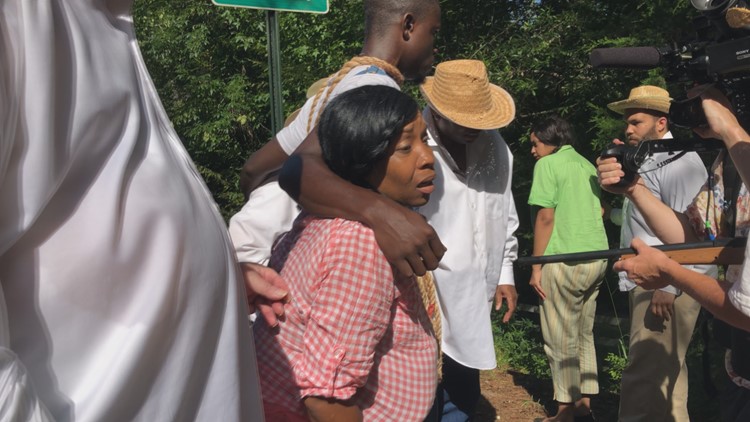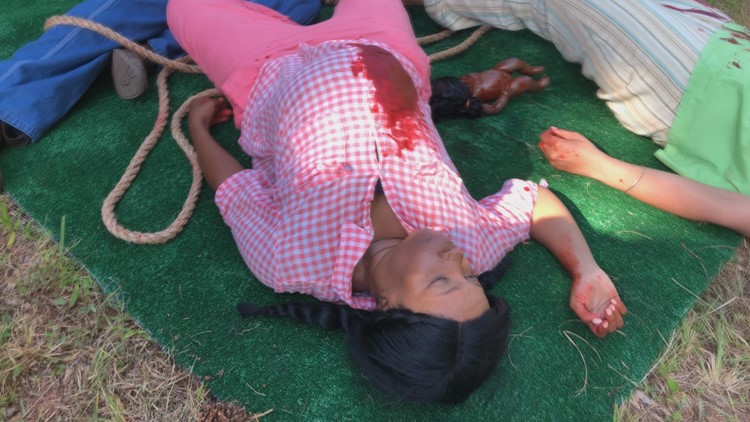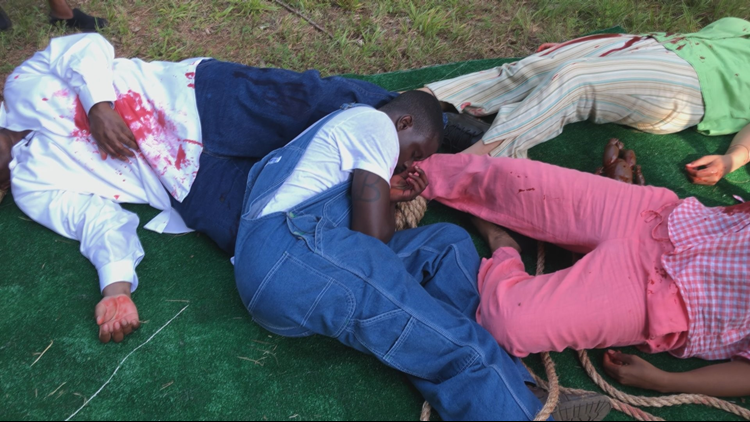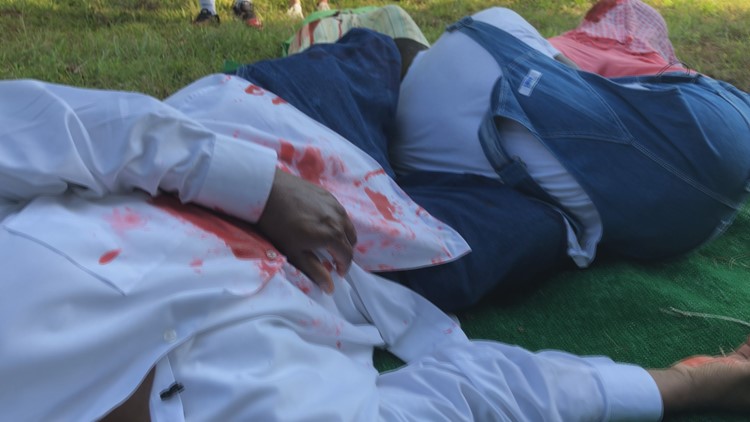ATLANTA (AP) — A federal appeals court plans to rehear arguments on unsealing the transcripts from grand jury proceedings in the unsolved lynching of two black couples in rural Georgia more than 70 years ago.
The 11th U.S. Circuit Court of Appeals in Atlanta said Tuesday that a majority of its judges voted to rehear the case involving the brazen killing of Roger and Dorothy Malcom and George and Mae Murray Dorsey. The four were riding in a car when a white mob stopped them at Moore's Ford Bridge in July 1946. The mob pulled the four sharecroppers from the car and shot them multiple times along the banks of the Apalachee River in rural Walton County, just over 50 miles (80 kilometers) east of Atlanta.
FBI agents investigated for months and identified dozens of possible suspects, but a federal grand jury convened in December 1946 failed to indict anyone.
RELATED: 'The jury was rigged' | Historian behind effort to unseal lynching testimony hopes for truth
Historian Anthony Pitch, who wrote a 2016 book on the killings — "The Last Lynching: How a Gruesome Mass Murder Rocked a Small Georgia Town" — has been trying to get access to records related to the grand jury proceedings, hoping they might provide insight into what happened.
A federal judge in 2017 ordered the records unsealed, but the U.S. Department of Justice appealed, arguing grand jury proceedings are secret and should remain sealed.
A three-judge panel of the 11th Circuit appeals court ruled 2-1 in February to uphold the lower court's order. But a new order issued Tuesday says a member of the court requested a poll on whether the case should be reheard by the full 11th Circuit, and a majority of the judges on the court voted in favor. The court did not indicate when the rehearing would happen.
Roger Malcom, 24, had been jailed after stabbing and gravely injuring a white man, Barnett Hester, during an argument. A white farmer, Loy Harrison, paid $600 to bail Malcom out on July 25, 1946. Harrison later claimed he was ambushed by a mob as he drove the Malcoms and Dorseys home.
Harrison, who was identified in an FBI report as a former Ku Klux Klansman and well-known bootlegger, wasn't hurt and told authorities he didn't recognize anyone in the mob.
The FBI investigation identified many possible suspects, but no one was charged.
Investigators, journalists, students, cold-case groups and activists have visited the crime scene many times over the years hoping to find new evidence or someone who will talk.
Given the passage of time and the historic significance of the case, Pitch's attorney Joe Bell said by phone Tuesday that he believes the lower court was right to order the records unsealed.
"I'm going to continue to bang the drum for justice," Bell said. "I think I'm on the right side of history and the right side of truth."
Pitch said in an email that he sees the rehearing as a positive development "because if a full panel of judges rules in our favor it will be pretty hard for the Supreme Court to rule the other way."

